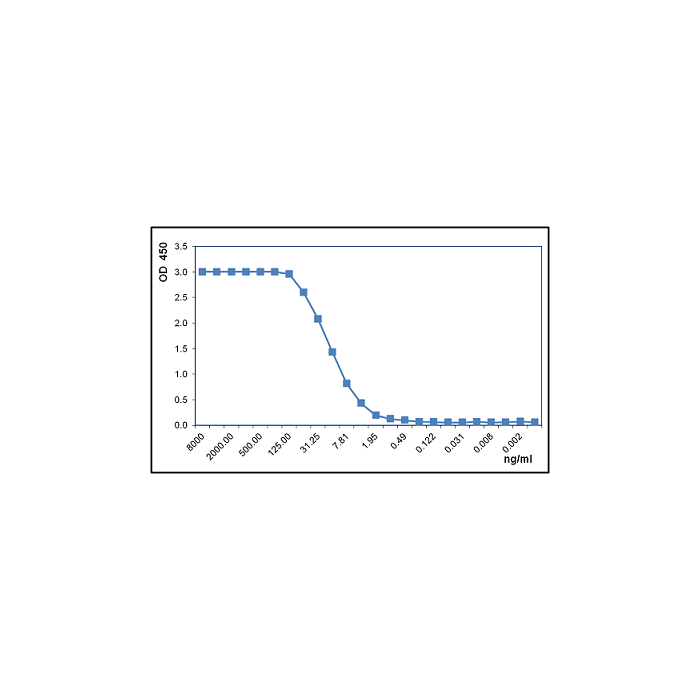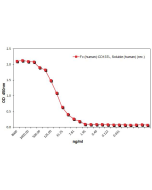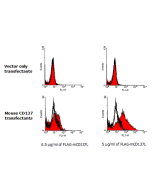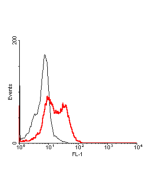Cookie Policy: This site uses cookies to improve your experience. You can find out more about our use of cookies in our Privacy Policy. By continuing to browse this site you agree to our use of cookies.
AdipoGen Life Sciences
CD137L, Soluble (human) (rec.)

1. hCD137-Fc + hCD137L-FLAG®-tag
2. hCD137-Fc + hGITRL-FLAG®-tag
3. hCD137-Fc + hGITRL-His-tag
4. hGITR-Fc + hCD137L-FLAG®-tag
5. hGITR-Fc + hGITRL-FLAG®-tag
| Product Details | |
|---|---|
| Synonyms | 4-1BBL; TNFSF9 |
| Product Type | Protein |
| Properties | |
| Source/Host | HEK 293 cells |
| Sequence |
The extracellular domain of human CD137L (aa 50-254) is fused at the N-terminus to a FLAG®-tag. |
| Crossreactivity | Human |
| Specificity |
Binds to human CD137. |
| MW | ~23kDa (SDS-PAGE) |
| Purity | ≥90% (SDS-PAGE) |
| Endotoxin Content | <0.06EU/μg purified protein (LAL test; Lonza). |
| Concentration | 1mg/ml after reconstitution. |
| Reconstitution |
Reconstitute with 50μl sterile water. Add 1X PBS to the desired protein concentration. |
| Formulation | Lyophilized from 0.2μm-filtered solution in PBS, pH 7.2. |
| Other Product Data |
Uniprot link P41273: CD137L (human) FLAG is a registered trademark of Sigma-Aldrich Co. |
| Shipping and Handling | |
| Shipping | BLUE ICE |
| Short Term Storage | +4°C |
| Long Term Storage | -20°C |
| Handling Advice |
After reconstitution, prepare aliquots and store at -20°C. Avoid freeze/thaw cycles. Centrifuge lyophilized vial before opening and reconstitution. PBS containing at least 0.1% BSA should be used for further dilutions. |
| Use/Stability |
Stable for at least 6 months after receipt when stored at -20°C. Working aliquots are stable for up to 3 months when stored at -20°C. |
| Documents | |
| MSDS |
 Download PDF Download PDF |
| Product Specification Sheet | |
| Datasheet |
 Download PDF Download PDF |
The CD137 ligand (CD137L; 4-1BBL) is a member of the tumor necrosis factor (TNF) family. CD137L is a type II transmembrane protein found on activated macrophages, dendritic cells and mature B cells. The interaction with its receptor 4-1BB induces recruitment of TNF receptor-associated factor 1 (TRAF1) and TRAF2 and interaction with the kinase p56lck. CD137 and CD137L have been reported to be involved in tumor rejection, apoptosis, anti-viral immunity, diabetes, in T and B cell co-stimulation and modulation of the immune response.
- Production of recombinant human trimeric CD137L (4-1BBL). Cross-linking is essential to its T cell costimulationactivity: C. Rabu, et al.; J. Biol. Chem. 280, 41472 (2005)
- A human CD137×PD-L1 bispecific antibody promotes anti-tumor immunity via context-dependent T cell costimulation and checkpoint blockade: C. Geuijen, et al.; Nature Commun. 12, 4445 (2021)









